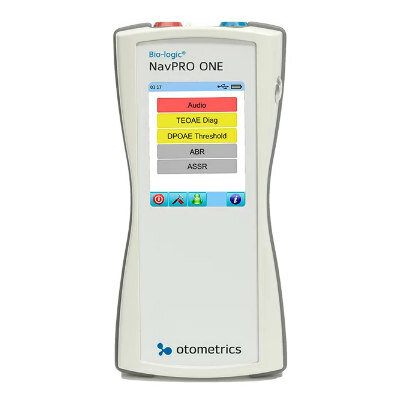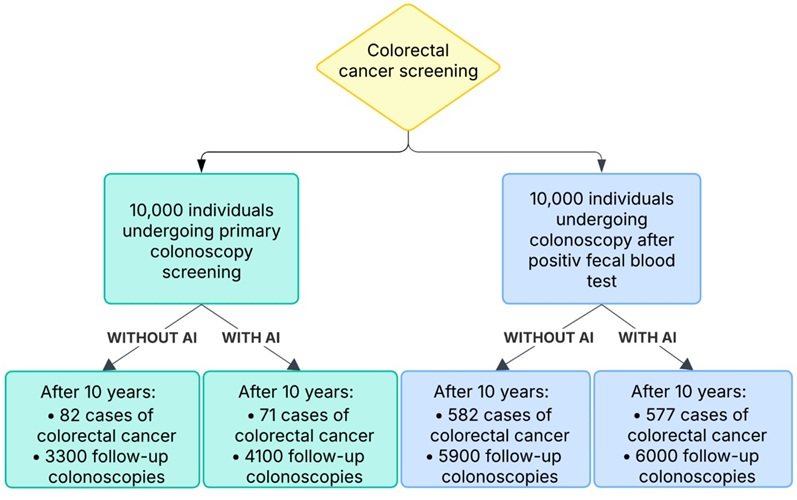New DNA Test Diagnoses Bacterial Infections Faster and More Accurately
|
By HospiMedica International staff writers Posted on 13 Mar 2025 |

Antimicrobial resistance has emerged as a significant global health threat, causing at least one million deaths annually since 1990. The Global Research on Antimicrobial Resistance (GRAM) Project warns that, without swift intervention, drug-resistant infections could lead to more than 39 million deaths between now and 2050. Now, researchers have developed a DNA sequencing technique that can be used directly in hospitals to diagnose bacterial infections with greater speed and accuracy. This advancement promises to allow doctors to provide better-targeted treatments sooner, offering patients faster recovery, fewer complications like sepsis, and a reduced risk of spreading infections to others.
The technology, developed by the Medicines and Healthcare Products Regulatory Agency (MHRA, London, UK) in collaboration with Barts Health NHS Trust (London, UK), is currently being tested to prevent hospital outbreaks of antibiotic-resistant 'superbugs' — an escalating global problem. As outlined in a publication in Frontiers in Cellular and Infection Microbiology, this DNA sequencing method can reliably identify the bacterial causes of infections and determine the most effective antibiotics for treatment. With results available in just two days, this method is a significant improvement over traditional approaches, which can take up to seven days or, in some cases, as long as eight weeks.
Since September 2024, more than 2,000 patient samples have been analyzed across seven London hospitals using this new method. The aim is to make rapid DNA sequencing a standard tool in NHS hospitals, providing faster and more accurate infection testing for patients nationwide. This study is the first large-scale clinical validation of its kind in the UK, and one of the first globally, testing DNA sequencing technology for diagnosing a broad range of infections. By directly analyzing bacterial genetic material, this approach allows for much faster and more accurate infection detection, including those that are more complex. This will enable earlier and more precise diagnosis and treatment, especially for critically ill patients.
The key to the success of this initiative is the MHRA’s development of reference materials — carefully regulated samples recognized by the World Health Organization, ensuring reliable and consistent diagnoses for patients. The MHRA is now working on standardizing the technology to support its wider adoption across the NHS. This could allow more hospitals to benefit from rapid, accurate bacterial infection diagnostics, reducing unnecessary reliance on broad-spectrum antibiotics. Furthermore, this technology holds potential for combating antimicrobial resistance and managing future hospital outbreaks. Efforts are now focused on optimizing and standardizing this DNA sequencing service to enable its replication in other settings, thereby accelerating the detection of pathogens and identifying antimicrobial-resistant strains more efficiently.
“This groundbreaking use of the technology in hospitals will cut diagnosis times down from weeks to just two days enabling doctors to provide the right treatment faster and saving lives, while also fighting the growing threat of antimicrobial resistance,” said UK Health Minister Ashley Dalton.
Related Links:
MHRA
Barts Health NHS Trust
Latest Critical Care News
- AI Eye Scans Could Help Identify Heart Disease and Stroke Risk
- Digital Heart Twin Improves Diagnosis and Treatment of Cardiac Arrhythmias
- First-Of-Its-Kind AI-Powered Probability Scoring System Assesses Heart Failure with Preserved Ejection Fraction
- AI-Assisted Colonoscopy Detects More Polyps but Has Modest Effect on Cancer Risk
- Wearables Could Reduce Need for Continuous Blood Thinners in Patients with Atrial Fibrillation
- AI Model Provides Real-Time Sepsis Risk Alerts for Improving ICU Patient Survival
- AI Algorithm Improves Intravenous Nutrition for Premature Babies
- Smart Mirror Generates AI-Powered Health Insights by Analyzing Facial Blood Flow
- Painless Diabetes Patch to Replace Needle Pricks

- Sensory T-Shirt Monitors Patient’s Vitals After Urological Surgery for Cancer
- Super-Sensitive Radar Technology Warns of Serious Heart Issues
- Thermal Imaging Could Accurately Track Vital Signs for Early Disease Detection
- New Microfluidic Device Improves Safety of Leukemia Treatment for Children
- Precision Transfusion Approach Improves Outcomes in TBI Patients
- Predictive Model for Daily Risk Alerts in Sepsis Patients Enables Early Intervention
- Novel Technology Measures Intracranial Pressure More Accurately and Non-Invasively
Channels
Artificial Intelligence
view channel
Innovative Risk Score Predicts Heart Attack or Stroke in Kidney Transplant Candidates
Heart researchers have utilized an innovative risk assessment score to accurately predict whether patients being evaluated for kidney transplants are at risk for future major cardiac events, such as a... Read more
AI Algorithm Detects Early-Stage Metabolic-Associated Steatotic Liver Disease Using EHRs
Liver disease, which is treatable when detected early, often goes unnoticed until it reaches advanced stages. Metabolic-associated steatotic liver disease (MASLD), the most prevalent form of liver disease,... Read moreCritical Care
view channel
AI Eye Scans Could Help Identify Heart Disease and Stroke Risk
New research has explored the advantages of utilizing artificial intelligence (AI) retinal imaging for screening cardiovascular diseases in general practice (GP) clinics and highlighted areas where improvements... Read more
Digital Heart Twin Improves Diagnosis and Treatment of Cardiac Arrhythmias
Millions of individuals around the globe suffer from cardiac arrhythmias. Traditionally, electrocardiography (ECG) has been used to detect premature ventricular contractions (PVCs), one of the most common... Read more
First-Of-Its-Kind AI-Powered Probability Scoring System Assesses Heart Failure with Preserved Ejection Fraction
Heart failure with preserved ejection fraction (HFpEF) is one of the most difficult types of heart failure to diagnose due to the intricate interaction between various clinical and echocardiographic factors.... Read moreSurgical Techniques
view channel
New Transcatheter Valve Found Safe and Effective for Treating Aortic Regurgitation
Aortic regurgitation is a condition in which the aortic valve does not close properly, allowing blood to flow backward into the left ventricle. This results in decreased blood flow from the heart to the... Read more
Minimally Invasive Valve Repair Reduces Hospitalizations in Severe Tricuspid Regurgitation Patients
The tricuspid valve is one of the four heart valves, responsible for regulating blood flow from the right atrium (the heart's upper-right chamber) to the right ventricle (the lower-right chamber).... Read morePatient Care
view channel
Portable Biosensor Platform to Reduce Hospital-Acquired Infections
Approximately 4 million patients in the European Union acquire healthcare-associated infections (HAIs) or nosocomial infections each year, with around 37,000 deaths directly resulting from these infections,... Read moreFirst-Of-Its-Kind Portable Germicidal Light Technology Disinfects High-Touch Clinical Surfaces in Seconds
Reducing healthcare-acquired infections (HAIs) remains a pressing issue within global healthcare systems. In the United States alone, 1.7 million patients contract HAIs annually, leading to approximately... Read more
Surgical Capacity Optimization Solution Helps Hospitals Boost OR Utilization
An innovative solution has the capability to transform surgical capacity utilization by targeting the root cause of surgical block time inefficiencies. Fujitsu Limited’s (Tokyo, Japan) Surgical Capacity... Read more
Game-Changing Innovation in Surgical Instrument Sterilization Significantly Improves OR Throughput
A groundbreaking innovation enables hospitals to significantly improve instrument processing time and throughput in operating rooms (ORs) and sterile processing departments. Turbett Surgical, Inc.... Read moreHealth IT
view channel
Printable Molecule-Selective Nanoparticles Enable Mass Production of Wearable Biosensors
The future of medicine is likely to focus on the personalization of healthcare—understanding exactly what an individual requires and delivering the appropriate combination of nutrients, metabolites, and... Read more
Smartwatches Could Detect Congestive Heart Failure
Diagnosing congestive heart failure (CHF) typically requires expensive and time-consuming imaging techniques like echocardiography, also known as cardiac ultrasound. Previously, detecting CHF by analyzing... Read morePoint of Care
view channel
Handheld, Sound-Based Diagnostic System Delivers Bedside Blood Test Results in An Hour
Patients who go to a doctor for a blood test often have to contend with a needle and syringe, followed by a long wait—sometimes hours or even days—for lab results. Scientists have been working hard to... Read more
Smartphone-Enabled, Paper-Based Quantitative Diagnostic Platform Transforms POC Testing
Point-of-care diagnostics are crucial for public health, offering rapid, on-site testing that enables prompt diagnosis and treatment. This is especially valuable in remote or underserved regions where... Read moreBusiness
view channel
Expanded Collaboration to Transform OR Technology Through AI and Automation
The expansion of an existing collaboration between three leading companies aims to develop artificial intelligence (AI)-driven solutions for smart operating rooms with sophisticated monitoring and automation.... Read more


















